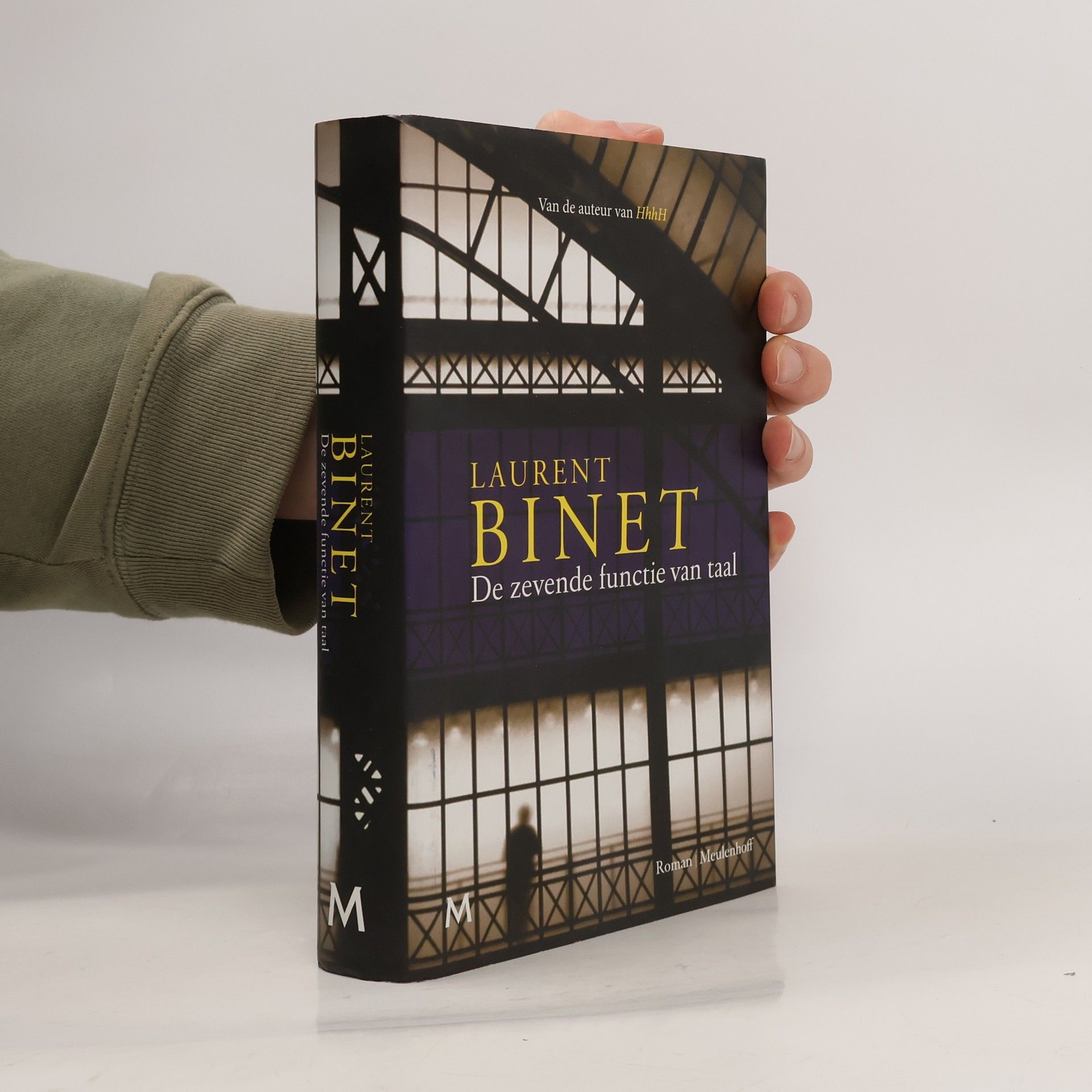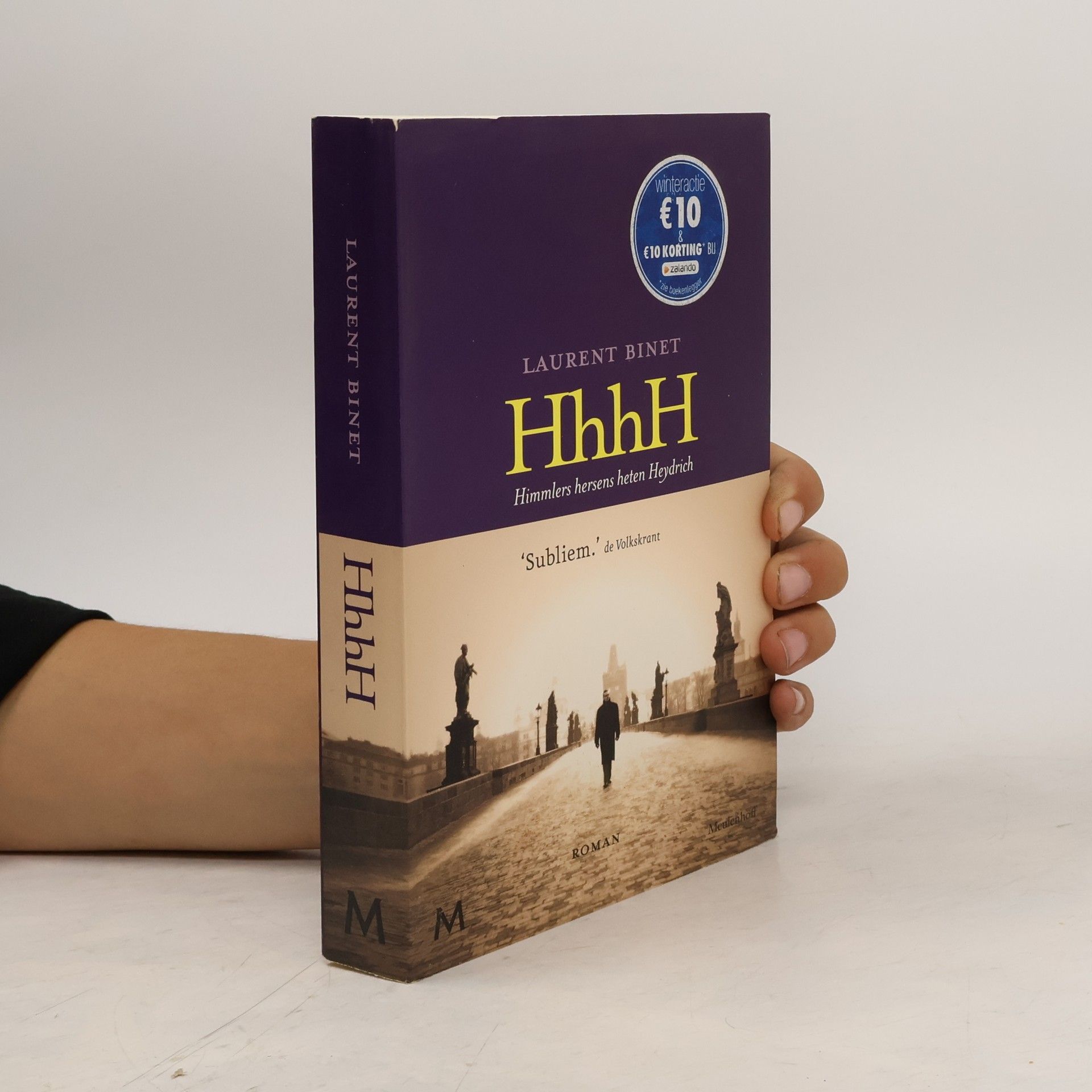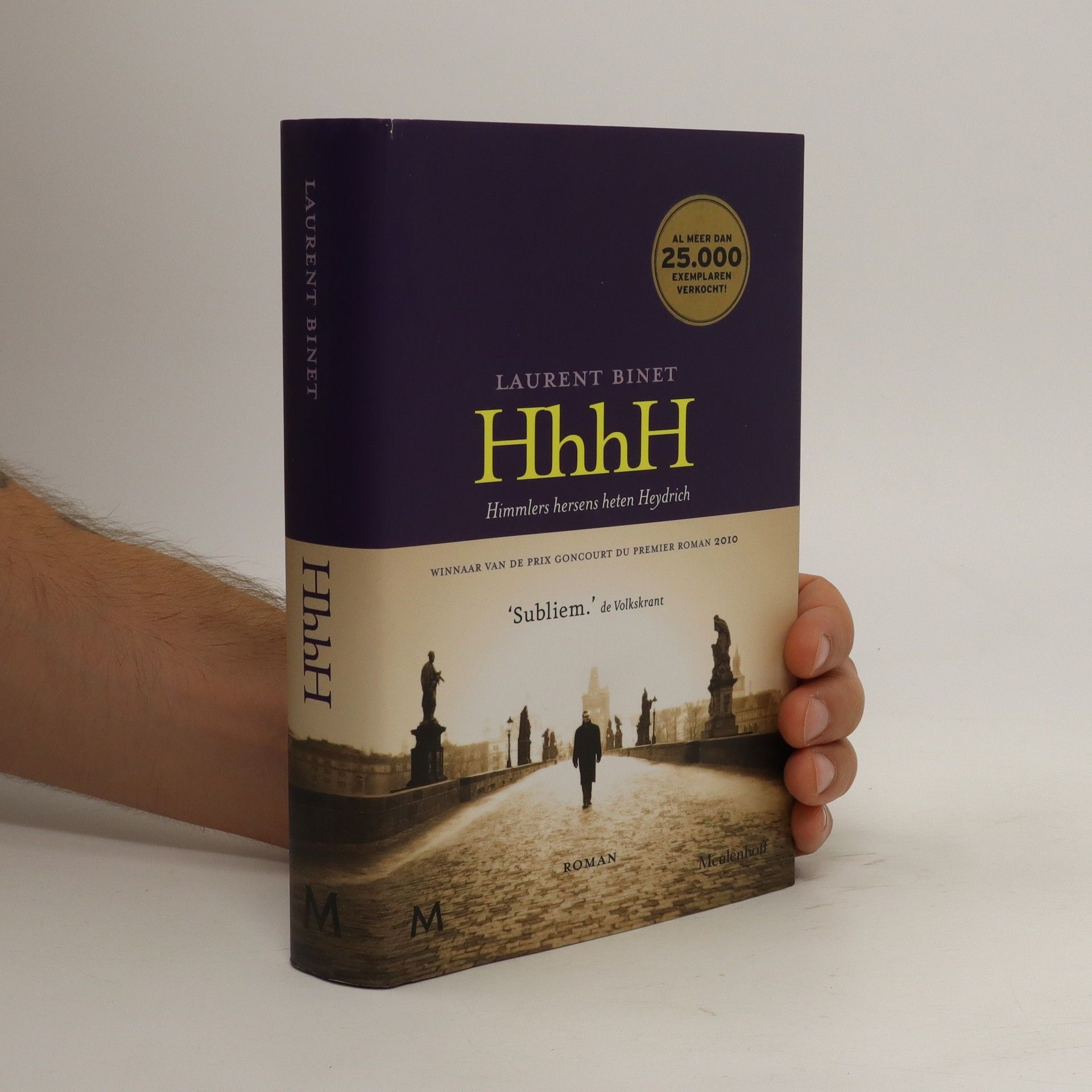HhhH /
Himmlers hersens heten Heydrich roman
Nazikopstuk Reinhard Heydrich, alias "de beul van Praag" en "het blonde beest", is uitvinder en uitvoerder van de Shoah, en een van de meest wrede nazi's die het Derde Rijk kende. Hij was de chef van Eichmann en de rechterhand van Himmler. Bij de SS noemden ze hem 'HhhH': "Himmlers hersens heten Heydrich". In mei 1942 wordt hij in Praag in zijn open Mercedes getroffen door een granaat. De gevolgen zijn meedogenloos: de granaat is geworpen door de Tsjechische parachutist Jan Kubis, en als represaille worden twee Tsjechische dorpen met de grond gelijkgemaakt, honderden mannen standrechtelijk geexecuteerd en duizenden vrouwen en kinderen afgevoerd en vergast. Alle personages die in dit boek voorkomen hebben bestaan of bestaan nog steeds. Alle feiten die worden verteld zijn waargebeurd. Maar achter de voorbereidingen van de aanslag vindt een andere strijd plaats: die tussen fictie en werkelijkheid.







